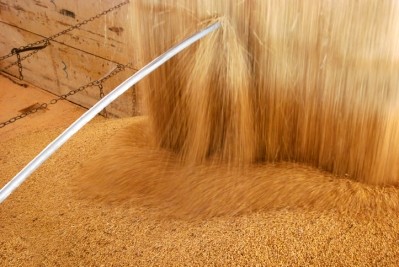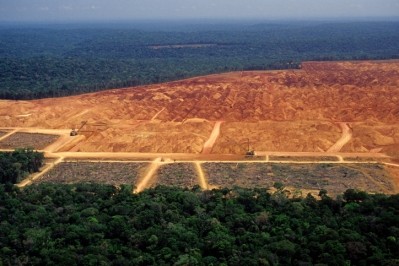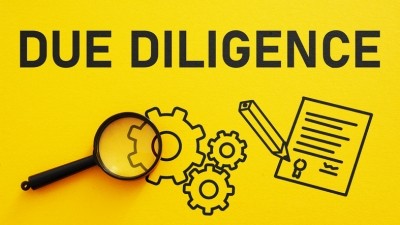To what extent does the EU deforestation law need to be adjusted?
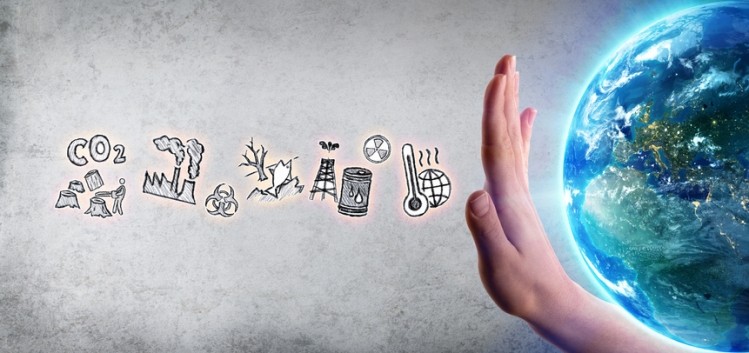
Other interested parties have been, on the whole, endorsing the EU executive’s efforts to develop a legislative response to the issue while also putting forward ideas of how the law can be tweaked to ensure it is more robust.
FEFAC, FEDIOL and COCERAL recently released position papers on the proposed legislation. As it stands, the trade groups say the regulation will have negative impact on food and feed industry competitiveness and it will lead to supply shortages in the EU, inflating prices.
The draft law will also have limited impact on deforestation, they stressed, citing aspects such as a lack of leverage and incentives to transform practices on the ground, the exclusion of smallholder farmers of some commodities, such as palm oil, due to certain constraints, as well as disproportionate administrative and logistical burdens for operators and competent authorities.
“It is not that we are against the regulation. We very much support action to fight deforestation. Our companies have been engaged for years and we want the regulation to be successful, not only in cleaning up supply chains, but also in addressing deforestation.
"But we see that the way the legislation is designed, it is missing a number of elements critical to making it work,” Nathalie Lecocq, director general, FEDIOL, told us on a call.
“The draft law has an idea of how to enhance transparency which, in itself, is positive but the way it wants to enhance it through geolocalization is ignoring facts on the ground,” she continued.
Requirements for traceability and chain of custody should be adapted to each commodity sector, its logistics and market specificities. The legislation “tries to provide one approach for quite different supply chains,” said Lecocq.
The three trade groups, she said, have highlighted how different approaches in the various commodity sectors “will achieve 100% deforestation free supply chains” but just not “in the way the Commission goes about it."
Anton van den Brink, senor policy and communication manager, FEFAC, weighed in on the discussion:
“This is legislation that has been years in the making. Our understanding of the original intentions was that it was about impact on the ground. Somehow, over the course of time, the legislation has been skewed more towards cleaning up supply chains, and this link to making a positive impact on the ground, staying connected to areas where it matters the most, has been lost a bit.
“This risk of tightening the screws in a certain way, where you drive risk avoidance purchasing is what a lot of NGOs fear, particularly the NGOs in places like Brazil, which really look to Europe to stay connected. That is clear pitfall in the legislation.”
He stressed how there has been no lobbying from FEFAC’s side to try and torpedo the proposal: “We are looking at legislation to see how it can help us on making that impact on the ground. We are the ones with the contacts in Brazil, and with our soy sourcing guidelines, we have shown our commitment to not letting go of certain exporting countries.”
November 2021 saw the EU Commission announce a proposal for a new regulation to curb global deforestation and forest degradation driven by EU consumption of certain commodities. This initiative is part of a set of EU Green Deal legislative proposals.
The draft law is focused on goods such as soy, beef, palm oil, wood, cocoa and coffee along with some derived products, such as leather, chocolate and furniture.
The text sets out binding due diligence obligations for operators and traders to carry out risk assessment and mitigation measures to comply with the marketing prohibition on goods associated with deforestation, translating into detailed requirements for traceability, including geolocalization of the farm or plot of production, transmission of information and physical segregation of products.
A benchmarking system operated by the Commission will identify countries as presenting a low, standard or high risk of producing commodities or products that are not deforestation-free or in accordance with the legislation of the producer country.
'Consultation, impact assessment was lacking'
It would have been more effective, said the FEFAC policy expert, if the Commission had engaged more comprehensively with the individual trade sectors while developing the draft regulation rather than it doing so, to a large extent, in isolation.
“And we don’t know what information they used to determine that their proposals would work,” he remarked.
Furthermore, said Lecocq, the Commission failed to carry out an assessment of the precise impact of what it is proposing.
Ultimately, argues van den Brink, there is a lack of understanding by EU policymakers on how commodity sourcing and trading precisely works.
In terms of soy, the legislation is calling for a segregated supply chain, said Lecocq, with her stressing that ‘sustainable’ or ‘deforestation-free’ or ‘conversion-free’ soy is, today, essentially provided through traded certificates.
“Segregated flows are very limited. That is a niche market and is likely to remain a niche market for several years. The soy [supply chain comprises] thousands of farms, with several dozens of plots, hundreds of first collectors, country elevators, transporters, port facilities, etc., so given the current circumstances, where everything is traded under mass balance, it would not be possible to switch to a segregated chain of custody in the time considered by the legislation.”
This aspect of the law, she said, will result in exclusion of soy sourcing from certain high-risk areas and it will pose problems in other soy growing regions. “This is exactly why we think the legislation is not delivering on what it is supposed to do. Because, by withdrawing from high-risk areas, the EU is reducing its leverage to influence [developments] on the ground.”
The trade representatives agree that segregation should be the ultimate target. “But we need to make sure that we give the supply chain the time to build that segregated supply, and, while we are proposing a mass balance approach, if you look precisely at what we are proposing it is actually quite prescriptive: a mass balance model with a very high percentage – 95% – of verified deforestation-free soy content, which would increase over time, so that you would reach, by 2030, a segregated chain," said the FEDIOL lead.
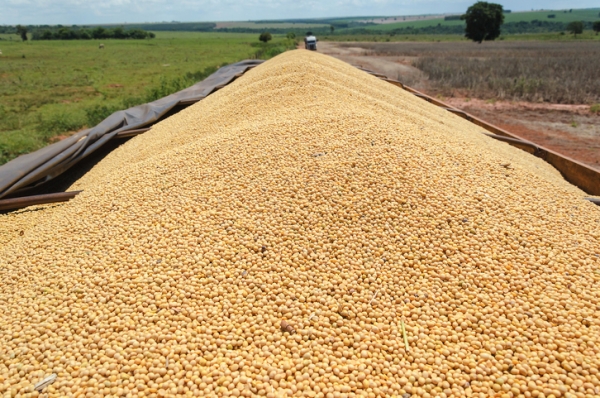
Ways to facilitate implementation of the regulation
Nathalie Walker senior director, tropical forests and agriculture at the National Wildlife Federation (NWF) in Washington, disputes some of the arguments put forward by the EU feed, grain and oilseed groups.
“The draft EU regulation would require commodity traders and processors to make important changes to their sourcing and traceability systems to avoid deforestation, however, these are in line with many existing commitments, and are all feasible.
“While there may be some additional costs for establishing these mechanisms, there would be significant savings in the medium to long term, because, as increasing scientific evidence shows us, key food production areas around the world are at risk of increasing drought and heat stress from habitat loss, that would severely impact yields and be a real and lasting threat to food security.”
Consumers in the EU, she told us, have the right to be able to purchase food that is not driving deforestation, and the EU must address embedded deforestation in its goods if it is to reach its goal of reducing GHG emissions and the harmful impacts of climate change.
“There are plans for third party cooperation and support for producer country forest governance that can help facilitate the implementation of the regulation, they would play an important role in ensuring that smallholders are able to fulfil the requirements of the legislation.
“While it is correct that additional support would be needed to ensure smallholders are not excluded from selling to the EU market, the regulation offers potential benefits to smallholders by reducing intermediaries and competition from illegal actors.
“The EU has been working on addressing these challenges, especially in the cocoa sector through the EU multi-stakeholder dialogue for sustainable cocoa, which offers lessons for other commodities.”
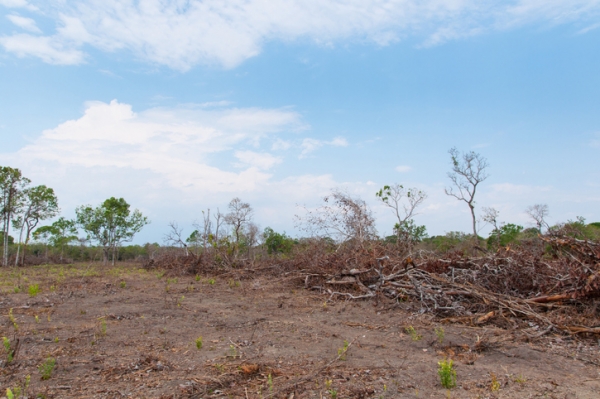
The regulation as currently drafted, she added, would represent a major advance in reducing deforestation risk in key commodity supply chains. It would clarify expectations for deforestation-free production that would facilitate investment in production and traceability systems that are compliant.
“It is well known that while many companies have made deforestation commitments, implementation has been slow or even absent. We see efforts on the ground stalling or processors concerned that they have not seen any market benefits for their efforts to monitor deforestation, which disincentivizes implementation, and this regulation would help overcome this barrier.”
While the NWF wants to make sure smallholder producers are able to access the EU market, and that their land rights are protected, it also has concerns about the regions covered under the law: “We would like to see the regulation expand beyond the current definition of forests to include important ecosystems such as the Brazilian Cerrado, which is a major production area for soy.”
Avoiding bifurcation in markets
Chris West from the University of York and Helen Bellfield from Global Canopy, as part of Trase, have been carrying out analysis of the EU deforestation law, as it stands. They have developed a number of policy briefs on the topic over the past year as well.
Those researchers have also highlighted that significant amounts of 'at risk' landscapes such as the Cerrado will be missed with the current EU proposals. “We would recommend extension to include the FAO definition of 'other wooded areas' in the regulation's scope.”
Overall, the EU deforestation law, according to the Trase researchers, represents a robust set of requirements on operators.
Though, West, who leads SEI York’s sustainable consumption and production group and is deputy centre director for research, said that it will be important to ensure that the EU's risk assessment process is both robust and tailored to areas of most acute risk.
And, echoing comments made by van den Brink, he argued for pushing for broader engagement with stakeholders to ensure that bifurcation in markets – whereby companies that are unwilling or unable to comply with new norms will simply target markets with fewer demand-side pressures - is avoided and that the regulation can actually change practices on the ground.
'Due diligence requirements on the first importers of at-risk materials are critical for supporting our work.'
- Retail Soy Group
Level playing fields
The Retail Soy Group (RSG), an independent cohort of international retailers formed in 2013 to address a sector-wide gap in addressing demand for sustainability produced soy, said that while there are always areas for improvement in any regulatory proposal, it welcomes the Commission’s work to develop a legislative response to the deforestation impacts embedded within products.
“Our members have been leading efforts in our supply chains for over a decade to manage this risk and believe that appropriate actions by the Commission will be helpful in transforming supply chains whilst levelling the field with other businesses in our sector.
“We have been seeking to [enhance] transparency so that we can more effectively manage and support producers to adopt more sustainable land use practices. Due diligence requirements on the first importers of at-risk materials are critical for supporting our work, as they ensure a level playing field is attained throughout the sector. This is achieved whilst providing a common and consistent ask within our value chains so as to achieve a critical mass in demand for deforestation-free commodities needed to overcome tipping points in the way commodity trade and downstream processing take place,” said Will Schreiber, RSG representative.
No individual business can deliver the change that is needed alone, believes that organization.
“The spirit of the proposed regulation – and the accompanying enabling framework – will help provide clarity on the information exchange and action needed to deliver on our shared ambition for deforestation free sourcing being the market norm.”
The RSG represents major commercial chains like Ahold Delhaize, Aldi South, Aldi North, Asda, Co-op (UK and Switzerland), Lidl, Marks & Spencer, Migros, Sainsbury’s, Tesco and Waitrose & Partners – which taken together operate nearly 50,000 supermarket outlets.

